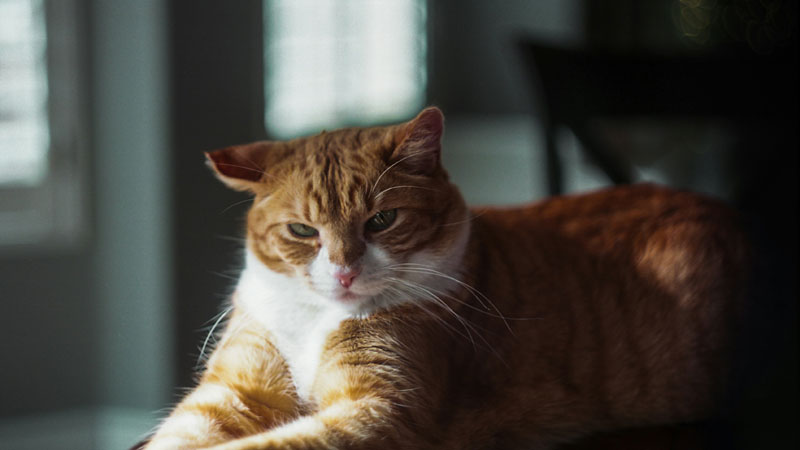Do Cat Colds Go Away on Their Own?

Photo by Jake Green on Quora
Cats, with their graceful demeanor and enigmatic personalities, bring immeasurable joy to our lives. However, just like humans, our feline friends are susceptible to the common cold, leaving us pondering a common question: Do cat colds go away on their own, or do they necessitate veterinary intervention?
In this comprehensive exploration, we'll unravel the mysteries surrounding cat colds, understanding the causes, symptoms, and whether a wait-and-watch approach is sufficient or if professional care is essential for our beloved companions.
Understanding Cat Colds
Causes and Transmission
Cat colds, technically known as upper respiratory infections (URIs), are primarily caused by viruses or bacteria. The most common viral culprits include feline herpesvirus and feline calicivirus, while bacterial infections can result from exposure to Bordetella bronchiseptica, Mycoplasma species, or Chlamydia felis. The highly contagious nature of cat colds means that transmission occurs through contact with infected cats, contaminated environments, or shared items.
Outdoor cats, particularly those in crowded conditions like shelters or catteries, are more prone to encountering and contracting these viruses. However, even indoor cats are not immune, as the viruses can be carried into homes on clothing or shoes.
Signs and Symptoms
Recognizing the signs of a cat cold is crucial for providing timely care. Common symptoms include:
- Sneezing
- Runny nose
- Watery eyes
- Coughing
- Lethargy
- Reduced appetite
While these symptoms are indicative of a mild cat cold, it's important to note that they can sometimes be signs of more serious illnesses, such as feline respiratory disease complex (FRDC). FRDC encompasses a range of respiratory conditions, and distinguishing between a simple cold and a more severe ailment requires careful observation.
Do Cat Colds Go Away on Their Own?
The answer to whether cat colds go away on their own isn't a straightforward one. In many cases, mild cat colds can indeed resolve without specific medical intervention. Cats, with their resilient immune systems, can often overcome viral infections with supportive care and time.
Supportive Care at Home
If your cat exhibits mild cold symptoms, you can provide supportive care at home to ease their discomfort and aid the recovery process:
Comfortable Resting Area: Ensure your cat has a warm, comfortable place to rest, away from drafts or excessive noise.
Hydration: Encourage your cat to drink water by providing fresh, clean water in easily accessible bowls.
Nutrient-Rich Diet: Offer palatable and easily digestible food to maintain their nutritional intake. Warming up the food slightly can enhance its aroma and appeal.
Humidification: Use a humidifier to add moisture to the air, helping alleviate respiratory congestion.
When to Seek Veterinary Attention
While many cat colds resolve on their own, certain circumstances warrant prompt veterinary attention:
Persistent Symptoms: If cold symptoms persist for more than a week without improvement, a visit to the vet is advisable.
Severe Respiratory Distress: Difficulty breathing, open-mouthed breathing, or persistent coughing indicate a need for immediate professional evaluation.
Lethargy and Refusal to Eat: A significant decrease in activity levels or a refusal to eat requires veterinary intervention.
Dehydration: If your cat shows signs of dehydration, such as sunken eyes or dry, tacky gums, seek immediate veterinary care.
Professional Diagnosis and Treatment
Veterinarians can conduct a thorough examination to determine the severity of the cat cold and rule out more serious conditions. In some cases, diagnostic tests, such as bloodwork or nasal swabs, may be recommended for a precise diagnosis.
Treatment options may include:
Antibiotics: If a bacterial infection is identified, antibiotics may be prescribed to target the specific bacteria causing the illness.
Antiviral Medications: In the case of viral infections, antiviral medications may be recommended to manage symptoms and promote a quicker recovery.
Fluid Therapy: In instances of dehydration, your vet may administer fluids to ensure your cat remains adequately hydrated.
Nutritional Support: In severe cases where a cat's appetite is compromised, nutritional support may be provided through fluids or specialized diets.
The Importance of Preventative Measures
Prevention is key to minimizing the risk of cat colds. Here are proactive measures to safeguard your feline friend's health:
Vaccination: Ensure your cat is up-to-date on vaccinations, especially for common respiratory viruses.
Hygiene Practices: Practice good hygiene by washing your hands thoroughly after handling other cats or visiting areas where cats congregate.
Stress Management: Minimize stressors for your cat, as stress weakens the immune system and makes them more susceptible to infections.
Regular Veterinary Check-ups: Schedule routine check-ups to monitor your cat's overall health and catch any potential issues early on.
Conclusion
In conclusion, the majority of healthy cats can typically overcome a cat cold and return to full health within a span of 7-10 days without the need for medical intervention. However, if a cat exhibits more severe symptoms necessitating medical treatment, the recovery process may be prolonged and more challenging, contingent upon the seriousness of the condition.
As responsible pet owners, our commitment to the well-being of our feline companions extends beyond moments of illness. By understanding the signs, providing compassionate care, and partnering with veterinarians for professional guidance, we can navigate the challenges of cat colds and ensure our beloved cats lead healthy, happy lives.





